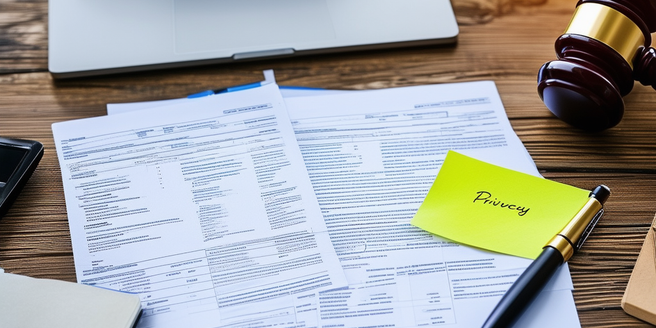
Understanding Data Privacy Laws
Understanding data privacy laws is crucial for both individuals and organizations. These laws are designed to protect personal information from unauthorized access and misuse. They provide guidelines on how data should be collected, stored, and shared. Key legislations include the GDPR in Europe and CCPA in California. Adhering to these laws not only ensures compliance but also builds trust with clients and consumers. Ignoring them can lead to severe penalties and loss of reputation. Furthermore, organizations must train their staff on data privacy principles to avoid inadvertent breaches. Regular audits can help identify and rectify potential vulnerabilities. It is important to stay informed about the latest updates and best practices in data privacy.
Common Types of Data Privacy Violations
Data privacy violations can take many forms, including unauthorized data access, data breaches, and data leaks. Unauthorized access occurs when someone gains access to data without permission. Data breaches involve the exposure of sensitive information due to security failures, while data leaks refer to unintentional information disclosure. Vigilance and continual assessment are key to ensuring data integrity. Moreover, employees should receive regular training on data privacy best practices. It is crucial to be aware of the legal and regulatory frameworks surrounding data privacy. Regular audits also play a vital role in maintaining the security of sensitive data. Understanding these types can help in identifying and mitigating risks. Organizations must implement robust security measures to prevent such incidents and protect personal data from malicious actors.
Steps to Take if Your Data Privacy is Breached
If you suspect your data privacy has been breached, there are essential steps to follow. First, identify and contain the breach to prevent further data loss. Next, assess the extent of the breach and the types of data involved. Inform affected individuals and relevant authorities promptly. Consider whether your current security measures were adequate. Implement measures to rectify vulnerabilities and prevent future breaches. Document every action taken and review your data protection policies to enhance security. Seeking legal advice may also be necessary to navigate the aftermath of a data breach. Additionally, ensure all employees are trained on updated security protocols. Regularly conducting security audits can help identify potential weaknesses before they are exploited.
Legal Recourses for Data Privacy Violations
Victims of data privacy violations have legal recourses available to them. They can file complaints with regulatory bodies like the Data Protection Authority. Legal actions can be taken against entities that fail to comply with data protection laws. Compensation claims can be pursued for damages suffered due to data breaches. It is crucial to act swiftly to preserve any evidence. Seeking legal advice early can significantly improve your chances of success. It is essential to gather evidence of the violation and consult with legal professionals to explore the best course of action. In addition, victims should stay informed about changes in data protection regulations. Knowledge of your rights under specific data privacy laws can strengthen your case.
Preventative Measures for Protecting Your Data Privacy
Preventing data privacy violations involves proactive measures. Regularly update and patch software to close security gaps. Use strong, unique passwords and enable multi-factor authentication where possible. Educate employees about data protection best practices and conduct routine security audits. Implementing a robust data loss prevention strategy can further safeguard your information. Additionally, consider investing in advanced threat detection tools to identify and mitigate risks promptly. Encrypt sensitive data both in transit and at rest. Regularly review and update your privacy policies to remain compliant with the latest regulations. Limit access to personal information to only those who need it. Staying vigilant and adopting a culture of privacy can significantly reduce risks and protect your data from potential threats.
